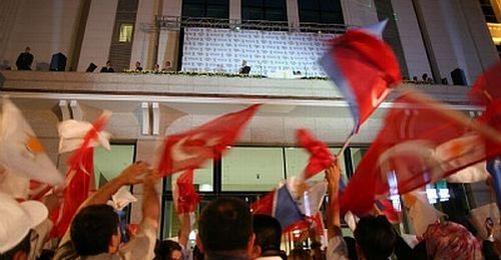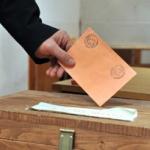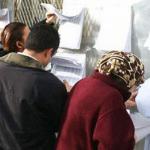With a total turnout of voters of 86.7 percent, the religious-conservative Justice and Development Party (AKP) won 49.9 percent of all votes in Turkey's parliamentary elections on Sunday (12 June). This translates to 326 seats in parliament. The main opposition Republican People's Party (CHP) will be represented with 135 members of parliament according to 25.91 percent of the votes.
The AKP with former and new Prime Minister Recep Tayyip Erdoğan managed to gain votes in the past three consecutive elections. In the previous elections in 2007, the ruling party gained 46.6 percent; the CHP had gathered 20.9 percent of all votes then.
The far-right National Movement Party (MHP) made its way into parliament with 13.04 percent. Before the elections, the MHP was anticipated to have difficulty to pass the ten-percent election threshold because of the so-called "cassette scandal" that showed party members together with prostitutes.
While the AKP will have five seats less compared to the outcome of the general elections in 2007, the number of MPs from the CHP increased from 102 to 135. The MHP faces a loss of 18 seats and will be represented by 54 members of parliament.
More than 2.8 million voters supported the independent candidates of the Labour, Democracy and Freedom Block. With 6.63 percent they secured 36 seats in parliament (compared to 5.2 percent in 2007). Accordingly, the Block reached its objectives regarding the representation in parliament. This is an important success achieved with the votes received in eastern and south-eastern provinces and in Adana and Mersin at the eastern Mediterranean.
The number of women MPs rose from 48 in the previous elections to 74 in 2011.
The Welfare Party (Saadet Party) and the Voice of the People Party (HAS) each gained about two percent of all votes and were not able to improve their performance compared to the previous elections.
The Democrat Party (DP) and the Democratic Left Party (DSP) gained less than one percent each. (ŞA/VK)







